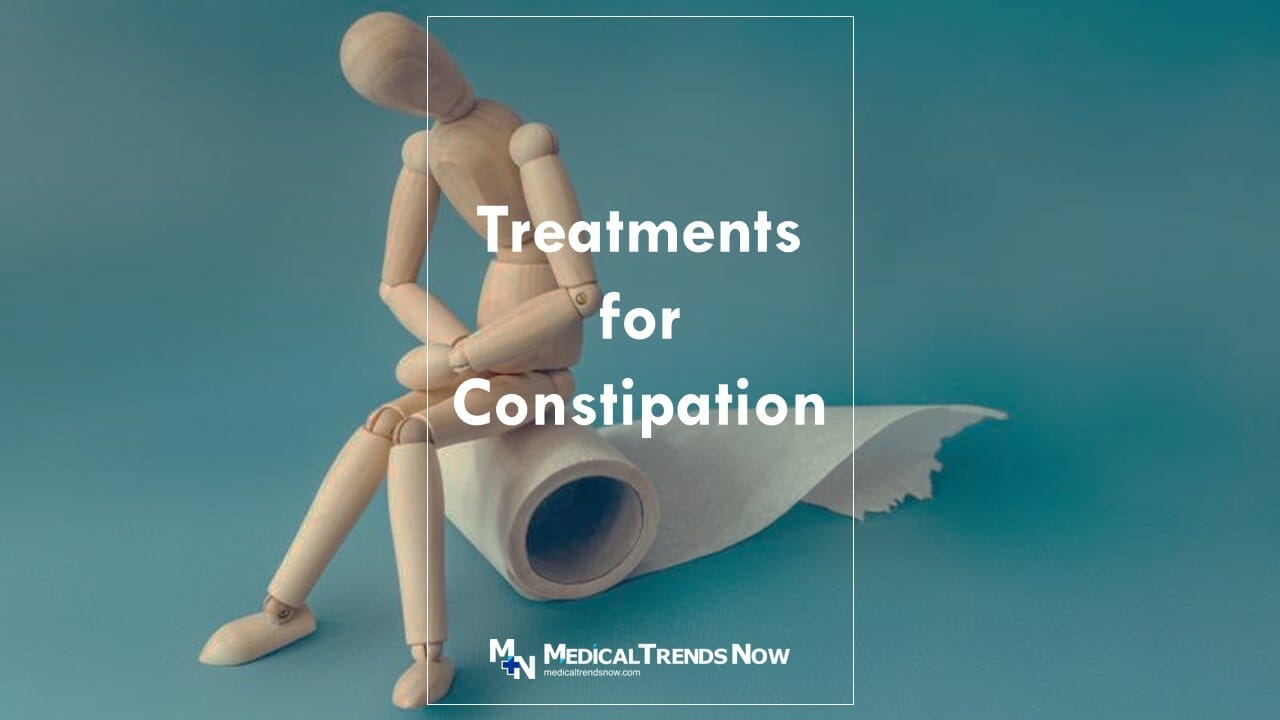Table of Contents
The best treatments for constipation for Filipinos. Learn about constipation natural remedies and medications to improve your bowel movement and digestive health.
Discover the easiest and most effective treatments for constipation in the Philippines. Learn how to avoid this uncomfortable issue and start feeling better today!
You know how uncomfortable it can be if you’re among the many Filipinos who suffer from occasional constipation. Fortunately, there are a number of simple remedies that can help to relieve symptoms and get your digestive system back on track. In this article, we’ll discuss some of the most effective treatments for constipation that you can use at home. We’ll look at natural ways to improve digestion and ways to make your diet more constipation-friendly.
What is Constipation?
Constipation is a common digestive complaint that affects millions of Filipinos in the Philippines and abroad. It occurs when an individual has difficulty passing stools and most commonly presents itself as infrequent bowel movements or hard, dry stools that are difficult to pass. In severe cases, constipation can cause rectal bleeding or abdominal pain.
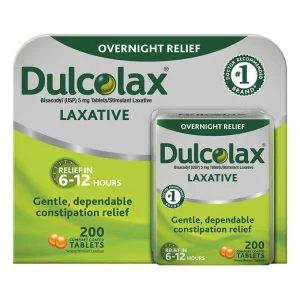
Causes of Constipation
Constipation is a common issue affecting many Filipinos’ quality of life. It is defined as having three or fewer bowel movements in one week. Constipation usually caused by not eating enough fiber, not drinking enough fluids, or simply being physically inactive. Other causes of constipation include medications, inadequate sleep, and lack of exercise. In rare cases, conditions such as hypothyroidism, celiac disease, or irritable bowel syndrome may be to blame.
The most common cause of constipation is poor diet choices, such as eating too few fruits and vegetables and not getting enough fluids throughout the day. Regular physical activity helps keep your digestive system running smoothly by stimulating movement in your intestines; however, if you are inactive, this can lead to problems with regularity. Additionally, certain medications like opioids have been known to slow down normal digestion leading to constipation.
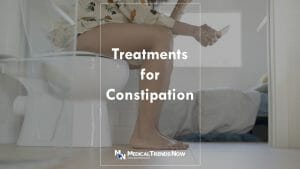
Easy Treatments For Constipation
Constipation is an uncomfortable and common digestive issue that affects many Filipinos. Though it can be unpleasant, there are several easy treatments you can do to get relief without having to take medication.
One of the simplest ways to treat constipation is to ensure you drink enough water throughout the day. Staying hydrated helps keep your body’s digestion and elimination systems running smoothly, so it’s important to drink at least eight glasses of water daily. Eating foods high in fiber, like fruits, vegetables, and whole grains, can also help ease constipation as they add bulk and moisture to your stool, making them easier to pass. Adding physical activity into your daily routine can help relieve symptoms, as regular exercise stimulates your digestive system and helps regulate your bowel movements.
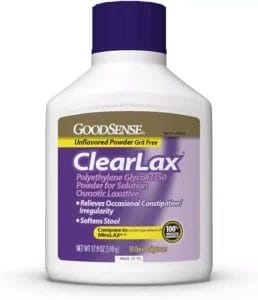
Medications and Treatments for Constipation
Constipation is a common problem that can have many causes, including medications. Some medications can slow the digestive process, causing stools to become hard or infrequent. Examples of these medications include opioid pain relievers and calcium channel blockers. Other medicines, such as iron supplements and antacids with aluminum hydroxide, may also contribute to constipation in some Filipinos.
In addition to medications being a possible cause of constipation, they may also be used to treat it. Laxatives are commonly prescribed for short-term relief from constipation caused by certain medications or other health conditions. Bulking agents are another type of medication that helps increase stool size and bulk so they pass more easily through the intestines and out of the body.

Diet Changes for Relief: Treatments for Constipation
Eating more fiber-rich foods such as fruits, vegetables, and whole grains can help to add bulk to stools and make them easier to pass. Increasing water intake and avoiding processed foods can also be beneficial for relieving constipation. Consuming probiotics, such as yogurt or kefir, may also positively affect digestion and bowel regularity. Additionally, including physical activity in the daily routine has been found to improve gut health and reduce symptoms of constipation.
Making these small dietary modifications can go a long way toward providing relief from uncomfortable constipation symptoms while promoting overall digestive health.
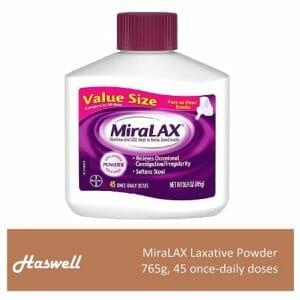
Laxatives: Treatments for Constipation
Laxatives are one treatment for constipation, although they should only be used when a medical professional recommends them. Laxatives work either by increasing the amount and ease with which stool passes through the intestines or by stimulating nerve endings in the colon wall to increase muscle contraction and move along contents within the digestive system. As with any medication, there are potential side effects associated with laxatives use, and they should, therefore, not be taken without consulting a Filipino doctor first.
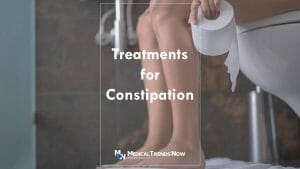
Exercise to Help Relieve Symptoms: Treatments for Constipation That You Can Do
Exercising regularly helps to stimulate the digestive system by improving circulation to the pelvis area and reducing stress which can also help alleviate constipation. When you exercise, your muscles contract, which moves food through your intestines faster, promoting regularity, low-impact exercises such as walking or swimming are particularly beneficial for relieving constipation since they put less strain on your abdomen than high-intensity workouts do. Additionally, certain yoga poses may help improve digestion and reduce tension in the body which could lead to fewer episodes of constipation.
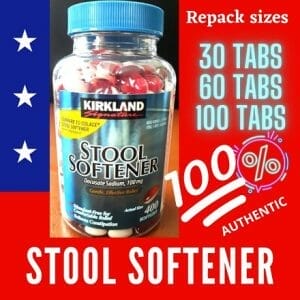
Home Remedies: Treatments for Constipation at Home
Home remedies effectively relieve constipation symptoms in the short term and improve overall digestive health.
Drinking water is one of the simplest home remedies for constipation relief. Increasing water intake can help hydrate the intestines, which helps move food and waste through the body more efficiently. Additionally, adding fiber to your diet can help ease constipation since it adds bulk to stool, making it easier to pass from the body. High-fiber foods include beans, lentils, legumes, nuts and seeds, and fruits like apples and pears with the skin left on them. Other home remedies for relieving constipation include regular exercise and probiotic supplements that contain beneficial bacteria for gut health.
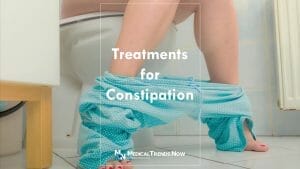
Natural Supplements
Natural supplements typically contain herbs, minerals, and vitamins that can help relieve constipation.
Studies suggest that some natural supplements may be effective at relieving constipation. Psyllium husk is one such supplement; it contains fiber that helps absorb water into the stool, making it softer and easier to pass. Another option is senna leaf extract which acts as a laxative by stimulating the intestines to contract and push out the stool. Finally, probiotic supplements contain beneficial bacteria which help improve digestion and reduce bloating associated with constipation.
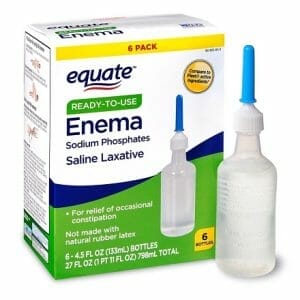
Preventing Constipation
Prevention is always better than any cure.
Constipation is a common and uncomfortable digestive issue that can be prevented with simple lifestyle modifications. Eating a balanced diet, drinking plenty of water, and exercising regularly are all important steps to help keep your digestive system running smoothly.
Including fiber-rich foods in your diet is essential to preventing constipation. Foods like whole grains, legumes, fruits, vegetables, nuts, and seeds can help add bulk to your stools while providing beneficial vitamins and minerals. Additionally, avoiding processed foods high in sugar and saturated fats may further help ease digestion. It’s also important to stay hydrated by drinking 8-10 cups of fluids daily. Staying active is another essential piece of the puzzle; regular physical activity helps move food quickly through the intestines to promote regularity.
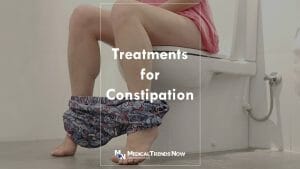
FAQs – Causes, Symptoms, Prevention, and Treatments for Constipation
Here are the most frequently asked questions about the causes, symptoms, prevention, and treatments for constipation in the Philippines:
What happens to my stool during constipation?
Constipation is a symptom that affects many Filipinos and can be caused by various factors. It occurs when stool moves too slowly through the intestines, resulting in infrequent bowel movements or stools that are difficult to pass—as such, understanding what happens to your stool when you experience constipation can help you better manage it.
Constipation causes stools to become hard and dry, making them more difficult to pass. This resulted in pain and discomfort during bowel movements and increased straining or pressure on the pelvic floor muscles. In some cases, it can even lead to fecal impaction, where the stool becomes stuck in the rectum due to its hardened consistency.
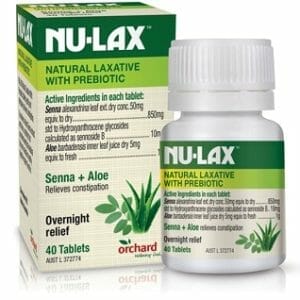
What are the fast and easy treatments for constipation?
Constipation is an all too common problem for many Filipinos, but luckily there are fast and easy treatments available. Constipation can not only be uncomfortable and disrupt daily life, but it can also be a sign of something more serious such as irritable bowel syndrome or colon cancer. Therefore, it is important to seek advice from your doctor in the Philippines if you are experiencing symptoms of constipation.
The most important step in treating constipation is ensuring that you get enough fiber and hydration in your diet. Eating plenty of fruits and vegetables, exercising regularly, and drinking at least eight glasses of water daily can help quickly relieve constipation. Additionally, over-the-counter laxatives or stool softeners may provide relief but should only be used short term as they can have unwanted side effects when used long term.

What food or drink can cause constipation?
One of the most commonly overlooked causes of constipation is the type of food or drink consumed. Certain foods and drinks can act as laxatives, while others may worsen symptoms of constipation. It’s important to be aware of what types of food or drink can cause or contribute to this uncomfortable condition so that you can make informed decisions about your diet choices when considering treatments for constipation.
Foods and drinks that are naturally high in fiber are beneficial for Filipinos dealing with constipation since they increase stool bulk and soften stools. However, some foods such as dairy products like cheese, eggs, bananas, and wheat bran have been shown to have a binding effect that makes stools harder and more difficult to pass.

What type of Filipino specialist doctor can treat constipation?
The digestive system is a complex and intricate network; its problems can be difficult to diagnose and treat. Constipation is one such issue that affects millions of Filipinos every year. So, what type of specialist doctor in the Philippines can treat constipation?
Filipino specialists in gastrointestinal disorders are typically trained to diagnose, manage and treat constipation-related issues. These doctors in the Philippines may include gastroenterologists or colorectal surgeons who specialize in diagnosing and treating diseases involving the digestive tract, including constipation. A gastroenterologist is a specialist physician that has completed at least three years of additional training beyond medical school focused on conditions affecting the digestive organs such as the stomach, intestines, and colon. Colorectal surgeons specialize in surgery for diseases affecting the rectum, colon, and anus, including surgery for patients with chronic constipation.
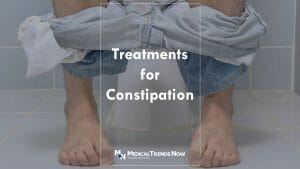
What are the signs and symptoms of constipation?
Knowing the signs and symptoms of constipation can help you identify the problem quickly so you can get treatment before it becomes more serious.
The most common sign of constipation has fewer than three bowel movements weekly. Other symptoms include hard or small stools, abdominal pain or cramps, nausea, bloating, straining during bowel movements, feeling like you still need to go after going to the bathroom, and rectal bleeding. If you experience any of these signs or symptoms for two weeks or more, you must see your doctor in the Philippines for diagnosis and potential treatments for constipation.
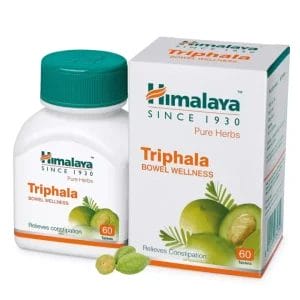
What is bowel movement?
A bowel movement, or BM, is the passage of feces from the body through the rectum and anus. It’s typically preceded by abdominal cramps and a feeling of needing to go. A healthy adult can expect to have up to three bowel movements per day, though regularity will vary from person to person. Constipation occurs when someone experiences difficulty passing stools or has infrequent bowel movements. Treatments for constipation include increasing fiber intake, exercising regularly, drinking more fluids, and considering over-the-counter medications such as laxatives or stool softeners if needed. In severe cases where dietary changes are inadequate in alleviating symptoms of constipation, a doctor in the Philippines may recommend surgery or other medical treatments such as biofeedback therapy.
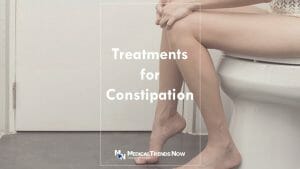
What is chronic constipation?
Chronic constipation is a common digestive disorder that can be difficult to manage. It is characterized by infrequent bowel movements, hard stools, and straining during defecation. The most common treatments for chronic constipation include lifestyle changes, over-the-counter medications, prescribed laxatives, and surgery in some cases.
Lifestyle changes such as increasing fiber intake with food sources like beans, fresh fruits, and vegetables are important first steps to managing chronic constipation. Increasing water intake is also recommended as it can help soften the stool and make it easier to pass. Other recommendations include regular exercise, avoiding dairy products when possible due to their tendency to cause constipation in some individuals, and ensuring adequate sleep each night, as fatigue can contribute to an unbalanced digestive system.
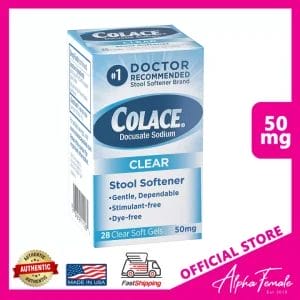
Can a baby constipate?
Yes, babies can constipate. Constipation occurs when a baby passes through hard stools infrequently or struggles to expel stool from the body. While constipation is not uncommon in infants and toddlers, if it persists for more than two weeks, it should be evaluated by a pediatrician.
Several treatment options are available when constipation causes pain or discomfort for the baby. The most common is dietary modification – adding water to a baby’s diet, increasing their consumption of fruits and vegetables, and decreasing dairy intake may help alleviate symptoms of constipation. Other treatments include giving the baby warm fluids like juice or water before meals and giving them lactulose or an over-the-counter laxative recommended by a pediatrician. In rare cases where these approaches do not work, enemas may be necessary to relieve severe constipation in infants or toddlers.
What is the fastest constipation relief medicine?
Constipation is a common gastrointestinal complaint that affects many Filipinos. It can be caused by dietary imbalances, lifestyle changes, or certain medications. Fortunately, there are many treatments for constipation that can provide relief quickly and effectively.
There are a few options available for finding the fastest constipation relief medicine. Over-the-counter laxatives such as MiraLax and Milk of Magnesia quickly loosen stools and stimulate regular bowel movements. Additionally, prescription medications like Amitiza and Linzess are effective in providing fast relief from constipation symptoms. Patients should talk to their healthcare provider before taking any over-the-counter or prescription medication to find out which one might be the best option for them.
![Senna Tablets 100 Ct. Natural Vegetable Laxative [Made in USA] Laxatives for Constipation, Weight Management, Gas, Regularity Pharbest by Ulai (1 Bottle)](https://e52hyu4yuyt.exactdn.com/wp-content/uploads/2023/01/Senna-Tablets-100-Ct.-Natural-Vegetable-Laxative-Made-in-USA-Laxatives-for-Constipation-Weight-Management-Gas-Regularity-Pharbest-by-Ulai-1-Bottle-287x300.webp?strip=all&lossy=1&ssl=1)
What are the home remedies and easy treatments for constipation?
Constipation can be uncomfortable and even painful if left untreated. Fortunately, several home remedies and easy treatments are available to help relieve constipation symptoms in the comfort of your home.
One popular remedy for constipation relief is increasing dietary fiber intake by incorporating more fruits, vegetables, whole grains, and legumes into your diet. These foods add bulk to stools, making them easier to pass through the colon without straining or discomfort. Another effective remedy is drinking plenty of fluids throughout the day, as dehydration can lead to hardening stools and difficulty passing them out. Additionally, exercising regularly can help stimulate digestion and promote regular bowel movements.

Treatments for Constipation: What is senna?
Senna is a natural herb that has been used for centuries as an herbal remedy for digestive ailments, particularly constipation. It belongs to the family of plants known as Fabaceae and is native to North Africa, South East Asia, and India. Senna has a long history of use in traditional medicine, and its compounds have been used as treatments for constipation since the fifth century BC.
Nowadays, senna is widely available in various forms, including dried leaves and leaf extracts, tablets or capsules containing powdered senna extract, and teas made from brewed senna leaves. When taken orally, it stimulates the contraction of muscles in the colon walls, which helps increase bowel movement frequency. It also helps soften stools by increasing the water content within them. Additionally, studies have shown that senna may help reduce abdominal pain associated with constipation due to its anti-inflammatory properties.
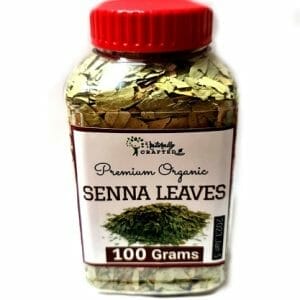
What is long-term constipation?
Long-term constipation is when a person has difficulty with bowel movements and passes infrequent stools that are usually hard and dry. Constipation can cause severe discomfort and lead to other medical problems if not properly managed. It is important for individuals suffering from long-term constipation to understand how it affects their bodies so they can seek the necessary treatments.
When it comes to treating constipation, lifestyle changes such as increasing physical activity levels, eating foods high in fiber, drinking plenty of water, and avoiding certain food groups are all recommended. Additionally, over-the-counter medications like laxatives may be prescribed by a physician depending on an individual’s health needs. Other treatments include enemas or rectal suppositories, which help increase stool output when used under medical supervision.
What are the best treatments for constipation in children under 13 years old?
Constipation is a common problem for Filipino children under 13 years old, but fortunately, treatments are available. Treatments range from lifestyle changes to medications and may depend on the severity of the condition. You must speak with your child’s doctor in the Philippines to determine which treatment will work best for them.
The most common and natural way to treat constipation in children is by increasing their fiber intake and ensuring they get enough fluids throughout the day. Eating foods like fruits, vegetables, legumes, and whole grains can help soften stool while drinking plenty of water helps move it through the digestive system more easily. Adding physical activity into their daily routine also helps improve digestion by stimulating muscle movement in the intestines.
In some cases, medications may be necessary if lifestyle changes do not provide relief after several weeks or months.
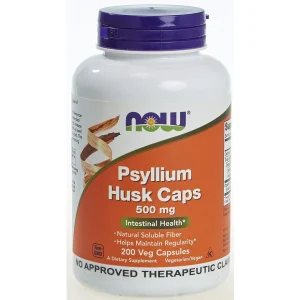
What is severe constipation?
Severe constipation is a medical condition that involves difficulty in passing stools, resulting in hard and dry stools. It occurs when the colon absorbs too much water from the food as it moves through the digestive tract. The common symptoms of severe constipation include infrequent bowel movements, straining during bowel movements, feeling of discomfort or bloating in the abdomen, and painful passage of hard stool.
Treatments for constipation vary depending on its severity. Mild constipation can be managed with dietary changes such as increasing the intake of fiber-rich foods and drinking plenty of fluids. Sometimes, laxatives may be recommended to ease defecation by softening the stools or increasing muscle contractions.
Takeaway: Treatments for Constipation and Home Remedies for Filipinos
In conclusion, constipation is a common condition that can be easily managed with small lifestyle changes. Eating more fiber and drinking more water are two of the easiest treatments that you can use to find relief from constipation. Other treatments include exercising, avoiding processed foods, and taking over-the-counter medications. It is important to remember that if natural treatments are unsuccessful, your doctor in the Philippines may need to prescribe a stronger treatment or suggest lifestyle modifications. With the right approach, you can find relief from constipation quickly and effectively.
Sources: Treatments for Constipation and Home Remedies for Filipinos
- Stimulant Laxatives: Uses and Side Effects – Healthline
- Constipation may lead to other illnesses – NHS
- Constipation is caused by what? Symptoms, Causes, Treatment & Prevention – Cleveland Clinic
- Constipation in Adults – Digestive Disorders – MSD Manuals
- What Are Osmotic Laxatives? How Do They Work? | MiraLAX®
- How Do Stimulant Laxatives Work? Drug Class, Uses … – RxList
- A doctor may treat constipation: Treatment for constipation | NIDDK
- Rectal prolapse – Symptoms and causes – Mayo Clinic
- 13 home remedies to relieve constipation naturally – Medical News Today
- Idiopathic Constipation | Symptoms, Diagnosis & Treatment – Cincinnati Childrens Hospital
- Constipation without abdominal pain: Irritable Bowel Syndrome (IBS) – Digestive Disorders – MSD Manuals
- Diet And Lifestyle Changes That Can Improve Your Constipation Issues – GastrpDoxs
- Constipation – Diagnosis and treatment – Mayo Clinic
- Chronic Idiopathic Constipation – Ada Health
- People with chronic constipation: The pathophysiology of chronic constipation – PMC – NCBI
- Best type of laxative: OTC Products for Constipation – familydoctor.org
- Constipation without a known cause: Causes and Prevention Tips – Hopkin Medicine
- What is inflammatory bowel disease (IBD)? – CDC
- Learn about constipation: Patient Education – UCSF Health
- Cases of constipation: Symptoms & Causes of Constipation | NIDDK
- Medicine to Treat Constipation – WebMD
- Management of chronic constipation: Mechanisms, Evaluation, and Management of Chronic – Gastro Journal
- Reduce constipation: Dos and Don’ts of Constipation Relief | Everyday Health
- treatment of functional constipation: Pediatric Functional Constipation – StatPearls – NCBI Bookshelf
- Constipation remedies: Constipation in children – NHS
Disclaimer
This website is intended to educate both members of the general public and those working in the medical field on the prevalence, causes, and methods for preventing, diagnosing and treating diseases that affect people throughout their lives. This website’s content is provided solely for informational reasons and is not meant to serve as a substitute for the advice of a qualified medical practitioner.

